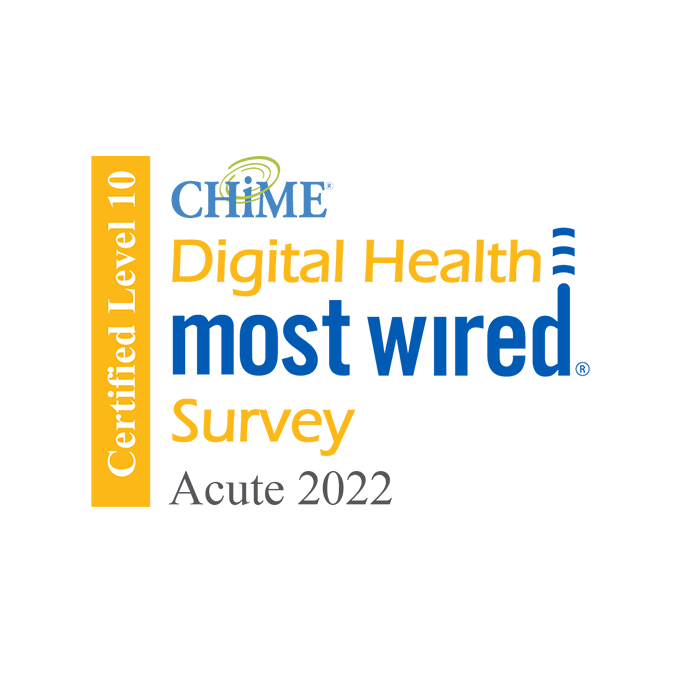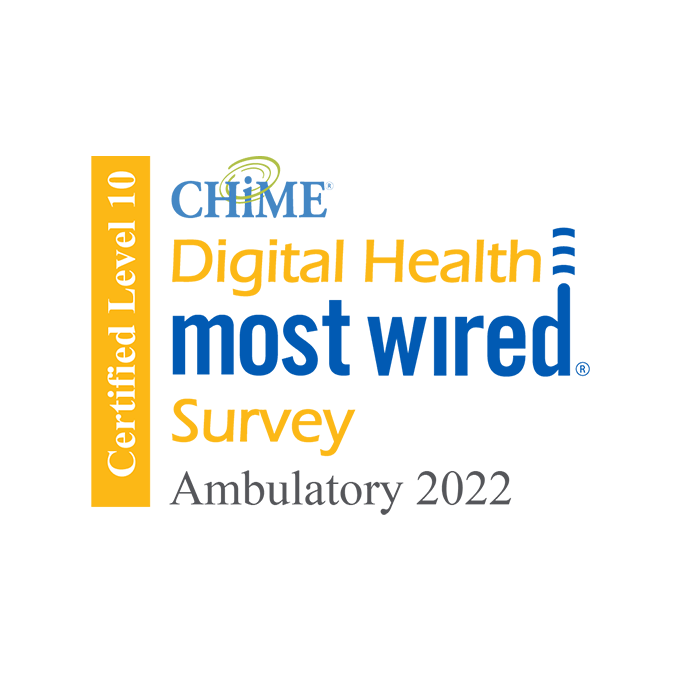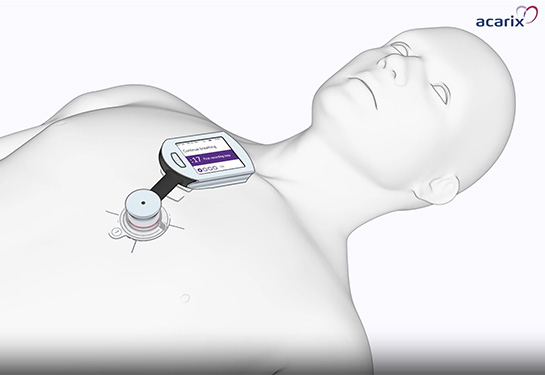Aortic Aneurysm
Our team provides expert, coordinated care using the most advanced minimally invasive and surgical treatments.
Medically reviewed on June 16, 2023.

Cutting-Edge Diagnosis and Treatments of Aortic Aneurysms
Our skilled specialists work together to diagnose and treat aortic aneurysms. We offer state-of-the-art procedures to reduce the risk of rupture and protect your health.
What Is Aortic Aneurysm?
An aortic aneurysm is a bulge that occurs in a weakened area of the aorta, the largest artery in your body.
The aorta travels up from your heart. Curving 180 degrees, it goes down through your chest and abdomen. Arteries branch off the aorta. They carry oxygen-rich blood to your head, arms, legs and internal organs.
Your aorta has a thick, flexible wall, so it can withstand the pressure of pumping blood. If the wall becomes damaged or weak, it can widen or balloon out.
Aneurysms can occur anywhere along the aorta:
- Abdominal aortic aneurysms (most common) occur in your abdomen, or stomach.
- Thoracic aortic aneurysms occur in your chest.
Aortic aneurysms can be life-threatening. They may burst (rupture), or a tear may occur between the layers of your aortic wall (aortic dissection). These conditions require emergency treatment.
Aortic Aneurysm Symptoms
Most people with aortic aneurysms don’t have symptoms. Symptoms usually occur when an aneurysm presses on structures inside your body.
Common Symptoms
Aortic aneurysm symptoms vary depending on the location of the aneurysm. You may experience one or more symptoms.
- Abdominal aortic aneurysm symptoms include ongoing pain or throbbing in the abdomen, back or groin.
- Thoracic aortic aneurysm symptoms include chest pain, difficulty breathing and voice hoarseness.
Emergency Symptoms
A ruptured aortic aneurysm is a medical emergency. Call 911 if you or a loved one has:
- Severe, sudden pain
- Fatigue or weakness
- Loss of consciousness
- Shortness of breath
Causes of Aortic Aneurysm
Aortic aneurysms are caused by a range of conditions that damage or weaken the aortic wall.
Atherosclerosis
Atherosclerosis is the buildup of plaque inside your arteries. These fatty deposits can damage artery walls. Atherosclerosis is the main cause of abdominal aortic aneurysms.
Genetic Conditions
Certain inherited conditions can affect the structure of the aortic wall, making it weak. Examples include Ehlers-Danlos syndrome, Marfan syndrome and bicuspid aortic valve.
High Blood Pressure (Hypertension)
Over time, high blood pressure inside your arteries can damage artery walls and weaken them.
Infection or Inflammation
Bacterial and viral infections of the aorta and chronic inflammatory conditions, such as vasculitis, can damage the aortic wall.
Sudden injury
A traumatic injury can damage your aorta and cause an aneurysm.
Aortic Aneurysm Risk Factors
Certain factors can increase your risk for aortic aneurysm, including:
Lifestyle Habits
Smoking is a key risk factor for aortic aneurysms, especially those in the abdomen.
Family History
Abdominal and thoracic aortic aneurysms can run in families. If you have a family member with an abdominal aortic aneurysm, your risk of also developing the condition is one in five.
Health Conditions
Certain health conditions increase your risk of aortic aneurysm. They include cardiovascular disease, chronic obstructive pulmonary disease, high blood pressure, high cholesterol and obesity.
Demographic
Some risk factors you cannot control, such as male gender, older age (over 65) and white race.
Aortic Aneurysm Diagnosis and Testing
To diagnose an aortic aneurysm, your physician performs a physical exam and reviews your medical and family history. Your physician may also recommend an imaging test, such as an ultrasound, CT or MRI.
A special ultrasound called a transesophageal echocardiogram (TEE) is an effective test for diagnosing thoracic aortic aneurysms. This test provides a detailed picture of your thoracic aorta. It involves inserting an ultrasound probe down your esophagus. Before the procedure, you receive medicine to help you relax.
If you have a family history of aortic aneurysm, your physician may also recommend genetic testing. A genetic test looks for changes (mutations) in certain genes that may be linked to aortic aneurysms.
Aortic Aneurysm Screening
Screening tests help find a condition before you develop symptoms. Your physician may recommend aortic aneurysm screening if you have a family history or other risk factors.
Men between ages 65 and 75 who smoke or have smoked may receive a one-time abdominal aortic aneurysm screening test. The innovative UC Davis Health abdominal aortic aneurysm surveillance program uses artificial intelligence (AI) to identify patients who may need screening.
Aortic Aneurysm Treatments
Your treatment depends on many factors, including the size and location of the aneurysm and your overall health. For a small aneurysm, treatment may include medications, lifestyle changes and close monitoring.
If there is a risk of rupture, you will need a minimally invasive or surgical procedure to fix the aneurysm. Our caring team helps you understand your options and decide the best treatment for you.
Endovascular Aortic Aneurysm Repair
Endovascular procedures repair aneurysms from inside the artery.
An interventional cardiologist inserts a thin, hollow tube (catheter) through an artery in your groin to your aorta. They pass a collapsed stent (fabric-covered metal mesh tube) through the catheter and expand it inside the aorta. The stent provides long-lasting support.
Two main types of endovascular procedures for aortic aneurysm repair are:
- Endovascular aortic repair (EVAR) for abdominal aortic aneurysms
- Thoracic endovascular aortic repair (TEVAR) for thoracic aortic aneurysms
Because these techniques are minimally invasive, you typically experience less pain and recover faster than with open surgery.
Our interventional cardiologists are nationally recognized for their skill. Other medical centers across the U.S. ask us to teach their physicians complex endovascular procedures.
Aortic Aneurysm Surgery
Aortic aneurysm surgery involves replacing the damaged section of aorta with a fabric tube (graft). Surgery can be complex if the aneurysm lies close to branching arteries. In this case, specialized or custom grafts may be necessary.
Our surgeons have extensive skill and experience in performing complex aortic aneurysm procedures. This expertise leads to excellent outcomes for our patients.
Preventing Aortic Aneurysm
A heart-healthy lifestyle is the best way to prevent an aortic aneurysm. Steps you can take include:
- Eat healthy foods: Focus on eating fruits, vegetables, lean proteins, whole grains and healthy fats. Limit sugar, alcohol and processed foods.
- Exercise routinely: Strive for at least 150 minutes of moderate-intensity exercise per week. Before starting an exercise program, talk to your physician about how much exercise is safe for you.
- Get enough sleep: Aim for seven to nine hours of sleep each day.
- Maintain a healthy weight: A body mass index (BMI) under 25 is ideal. Find out if your BMI is in the healthy range.
- Manage your blood pressure: Check your blood pressure at least once a year. If you have high blood pressure, work with your physician to bring your levels down.
- Quit smoking: Giving up cigarettes is an important thing you can do to prevent aortic aneurysms and improve your health. If you need support quitting, our specialists can help.
"Aortic Aneurysm Causes and Risk Factors," NIH, https://www.nhlbi.nih.gov/health/aortic-aneurysm/causes
"Get Regular Physical Activity," NIH, https://www.nhlbi.nih.gov/health/heart-healthy-living/physical-activity
Aortic aneurysm and smoking
75%Of abdominal aortic aneurysms are caused by smoking
Men who smoke or have smoked between ages
65-75Are recommended to get an abdominal ultrasound screening, even with no symptoms
Sources: Centers for Disease Control and Prevention (CDC): Aortic Aneurysm
U.S. Preventive Services Task Force: Abdominal Aortic Aneurysm: Screening
Request an Appointment
As Sacramento's No. 1 hospital, you'll benefit from unique advantages in primary care and specialty care. This includes prevention, diagnosis and treatment options from experts in 150 specialties.
Referring Physicians
To refer a patient, you can submit an electronic referral form or call.
800-4-UCDAVIS
Patients
For questions and appointment information
Consumer Resource Center
800-2-UCDAVIS

Ranked among the nation’s best hospitals
A U.S. News & World Report best hospital in cancer, cardiology, heart & vascular surgery, diabetes & endocrinology, ENT, geriatrics, neurology & neurosurgery, obstetrics & gynecology, and pulmonology & lung surgery.

Ranked among the nation’s best children’s hospitals
A U.S. News & World Report best children’s hospital in diabetes & endocrinology, nephrology, and orthopedics*. (*Together with Shriners Children’s)

Ranked Sacramento’s #1 hospital
Ranked Sacramento’s #1 hospital by U.S. News, and high-performing in COPD, colon cancer surgery, diabetes, heart attack, heart failure, hip fracture, hip replacement, kidney failure, leukemia, lymphoma & myeloma, lung cancer surgery, ovarian cancer surgery, pneumonia, prostate cancer surgery, stroke, TAVR, uterine cancer surgery, gastroenterology & GI surgery, and orthopedics.

The nation’s highest nursing honor
UC Davis Medical Center has received Magnet® recognition, the nation’s highest honor for nursing excellence.

“Most Wired” for acute care
UC Davis Health has been recognized as a level 10 out of 10 in the Digital Health “Most Wired” program from the College of Healthcare Information Management Executives (CHIME). The honor recognizes excellence in using technology to improve the delivery of care.

“Most Wired” for ambulatory care
UC Davis Health has been recognized as a level 10 out of 10 in the Digital Health “Most Wired” program from the College of Healthcare Information Management Executives (CHIME). The honor recognizes excellence in using technology to improve the delivery of care.

World-class cancer care
One of ~56 U.S. cancer centers designated “comprehensive” by the National Cancer Institute.

A leader in health care equality
For the 11th consecutive year, UC Davis Medical Center has been recognized as a “Leader in LGBTQ+ Healthcare Equality.”

